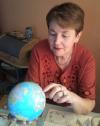Keywords:
informal education
sea cruise
competencies
training for tourism managers |
Abstract: the paper attempts to classify the stages and the content of informal education obtained by the author during sea cruises. Based on the author's experience and subjective impressions of visiting 102 different countries and territories of all continents except Antarctica and their in-depth study, the paper analyzes the augmentation of knowledge, skills, competencies, and experience. The author draws attention to the fact that traveling is usually considered as a leisure activity with no educational purpose, and educational tourism is considered as a stagnant industry entirely focused on the study of foreign languages. However, tourists in the post-industrial society tend to need tours that combine leisure and education. The recognition of educational tourism as an effective educational technology does not solve the issue, as methodological guidelines for lifelong education of tourists do not exist.
The article shows that cruise is a form of travel distinguished from any other forms by its information richness, variety of experience and its accumulation, integrated knowledge acquisition along with the development of the knowledge of foreign languages, countries, and the world's population.
Informal education on cruises can be implemented by careful itinerary planning, travel immersion, the analysis and synthesis of cruise materials, self-reflection, and scientific substantiation of conclusions. Moreover, the author discusses the prospects and content of informal education on cruises and states that it can be considered as a professional education sector providing the basis for the training of tourism managers and teachers. The author concludes that it is reasonable to continue collaboration between teachers and representatives of travel agencies to develop the guidelines to meet the educational needs of modern tourists.
Keywords: informal education, sea cruise, competencies, training for tourism managers.
|
References
1. Gorchakova-Sibirskaya M.P. Razvitie refleksii kak uslovie sotsializatsii lichnosti/ Global'naya dinamika sotsial'nykh protsessov sovremennosti: materialy Mezhdunarodnoy konferentsii «Sotsializatsiya lichnosti v global'nom mire». – SPb.: Izd-vo Politekhn. un-ta, 2009. – P. 384-385
2. KHusnutdinova S.R., Safonova M.V. Obrazovanie cherez puteshestvie kak odno iz napravleniy gorodskogo turizma. //FUNDAMENTAL RESEARCH 2014, №5. Geograficheskie nauki [E'lektronnyy resurs]. – Rezhim dostupa: http://www.kommersant.ru/doc/2038431/print (Accessed: 31 January 2014). Rodionova I.A., KHusnutdinova S.R., Valiev M.R. Geograficheskiy podkhod k izucheniyu turistskoy sostavlyayushchey investitsionnogo potentsiala i osobennostey privlecheniya investitsiy v regiony Rossii. //Sovremennye problemy nauki i obrazovaniya. 2013,№2. geograficheskie nauki. [E'lektronnyy resurs]. – Rezhim dostupa: www.science-education.ru/108-8955 (Accessed: 27 May 2014).
3. Solomin V.P., Pogodina V.L. Sovremennoe sostoyanie i perspektivy razvitiya obrazovatel'nogo turizma v Rossii // Izvestiya RGPU A.I. Gertsena. – 2007. – № 30.












